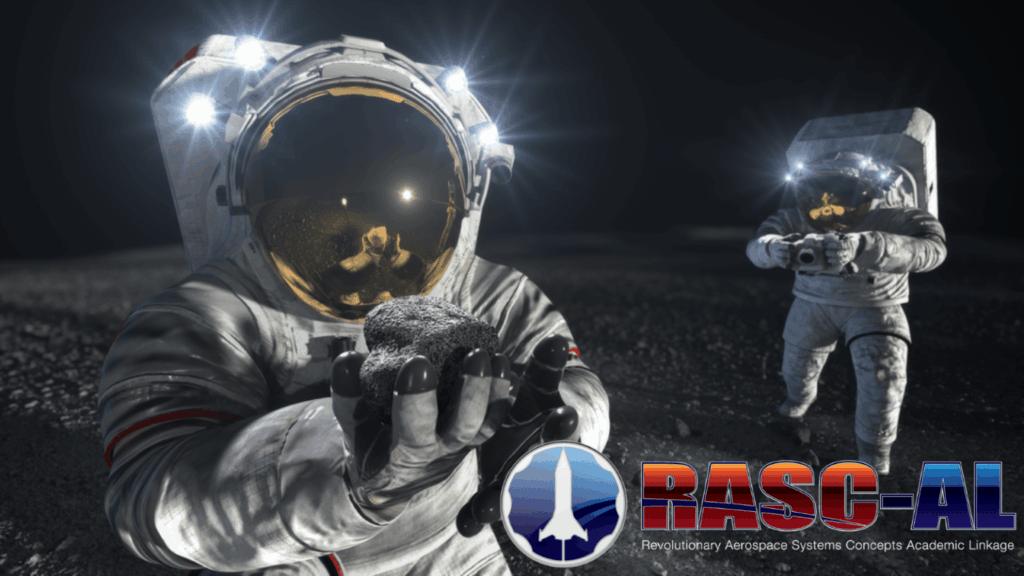
The National Aeronautics and Space Administration (NASA) is once again reaching out to the brightest minds in academia to envision groundbreaking concepts for space exploration. The 2026 NASA Revolutionary Aerospace Systems Concepts – Academic Linkage (RASC-AL) competition invites U.S.-based undergraduate and graduate teams to develop innovative solutions for human exploration on the Moon, Mars, and beyond. This initiative aims to bridge the gap between academic research and practical aerospace applications, fostering collaboration between universities, NASA, and industry leaders.
Opening on August 13, 2025, and closing on February 23, 2026, the competition will award a total of $112,000 in prizes to the most promising ideas. Participants are tasked with addressing themes that include developing systems and technologies for lunar surface exploration and enhancing capabilities for Mars missions. The RASC-AL challenge is not just a contest; it is a catalyst for innovation, encouraging students to push the boundaries of current aerospace systems.
Bridging Academia and Industry
The RASC-AL competition serves as a vital link between academic institutions and the aerospace industry. By engaging university students and faculty advisors, NASA aims to cultivate a new generation of innovators who can contribute to the agency’s long-term goals of sustainable space exploration. The competition’s emphasis on real-world applications ensures that participants’ concepts are not only visionary but also feasible for future missions.
According to NASA, the collaboration with academic institutions is crucial for developing the technologies needed to support human presence on the Moon and Mars. This initiative allows students to work closely with NASA experts and industry professionals, providing them with invaluable insights into the challenges and opportunities of space exploration.
Exploring New Frontiers
The themes for the 2026 RASC-AL competition reflect NASA’s current priorities in space exploration. With a focus on the Moon and Mars, participants are encouraged to think creatively about how to overcome the unique challenges of these environments. From developing life-support systems to designing efficient data transmission technologies, the competition covers a wide range of topics essential for future missions.
NASA’s Artemis program, which aims to return humans to the Moon by the mid-2020s, underscores the importance of such innovative efforts. By leveraging the creativity and expertise of students, NASA hopes to accelerate the development of technologies that will enable sustainable exploration of the lunar surface and pave the way for human missions to Mars.
Expert Opinions and Historical Context
Experts in the field of aerospace engineering emphasize the significance of competitions like RASC-AL in advancing space exploration. Dr. Emily Thompson, a leading researcher at the National Institute of Aerospace, notes that “engaging students in these challenges not only inspires the next generation but also brings fresh perspectives to long-standing technical hurdles.”
Historically, NASA has relied on academic partnerships to drive innovation. The Apollo program, for instance, benefited from collaborations with universities, which played a crucial role in developing the technologies that enabled the first human landing on the Moon. Today’s RASC-AL competition continues this tradition, ensuring that academic research contributes to NASA’s ambitious goals.
Looking Ahead
As the 2026 RASC-AL competition unfolds, participating teams will have the opportunity to present their concepts to NASA and industry leaders. The winning ideas will not only receive financial rewards but also the potential to influence future space missions. This competition represents a unique opportunity for students to make a tangible impact on the future of space exploration.
With the deadline set for February 23, 2026, teams are encouraged to think boldly and creatively. As NASA continues to push the boundaries of human exploration, the RASC-AL competition remains a vital platform for fostering the next generation of aerospace innovators.







